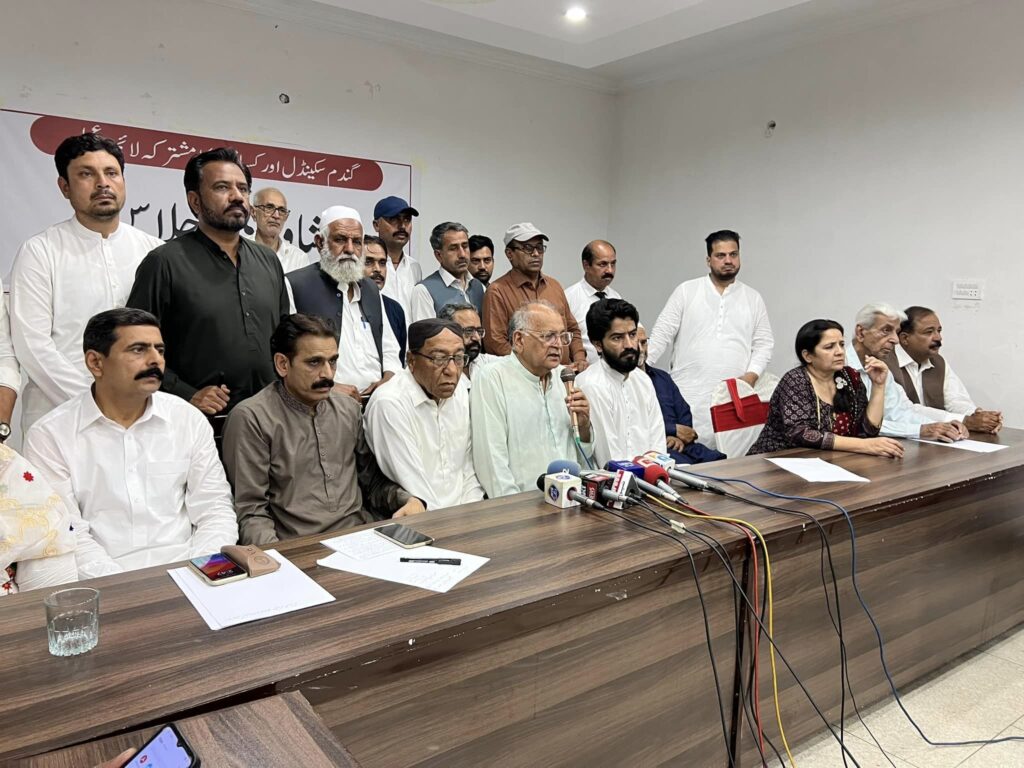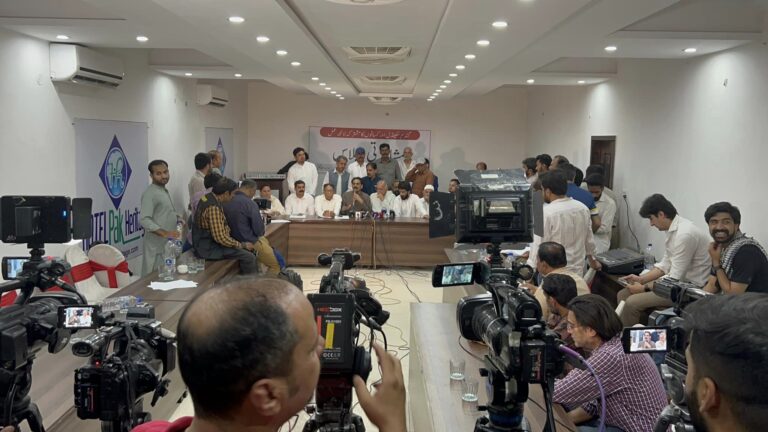Pakistan’s farmers’ unions on May 21 announced nationwide protests against the wheat crisis. They claim that the wheat crisis was deliberately caused by the former caretaker prime minister and some bureaucrats.
Unions are furious at the influx of wheat imports in the months of late 2023 and early 2024, leading to an oversupply of wheat on the market and resulting price cuts. The Pakistan Democratic Movement (PDM), which was in power at the time, took this decision in July 2023, just one month before the end of the interim government’s term.
Media reports cite figures provided by the Ministry of National Food Security and Research, which states that from September 2023 to March 2024, Pakistan will withdraw more than 3.5 million tonnes of wheat from the world market, where prices had fallen significantly. It shows that it was imported. As a result, by the beginning of April this year, when Pakistani farmers began harvesting wheat, the national and provincial food storage sectors found themselves with surplus stocks of over 4.3 million tonnes of wheat.
Our local membership organization, Pakistan Rabita Kisan Committee, reports that farmers in the country’s largest province, Punjab, have stopped imports of wheat that have flooded the market at a time when they are expected to have a bumper harvest. They are requesting the government to do so.
Agriculture is one of the most important income sectors in Pakistan, accounting for almost 23% of the country’s gross domestic product (GDP). Wheat accounts for 2% of the total.
A gathering of 15 farmers’ organizations representing different regions of Pakistan convened in Lahore on May 9 to address the ongoing wheat crisis that is affecting the entire rural community, especially in Punjab. Following the recommendations of the Pakistan Kisan Ravita Committee, these farmer groups decided to stage a nationwide protest.
Pakistan Kisan Rabita Committee General Secretary Farooq Tariq led a joint press conference after the meeting attended by farmers from Punjab, Sindh, Khyber Pakhtunkhwa and Balochistan. Tariq vociferously called for the immediate arrest of former caretaker prime minister Anwarul Haq Kakar, along with officials and importers allegedly involved in what he called the “wheat scam”. He said, “Pakistan imported 3.5 million tonnes of wheat between August 2023 and March 2024, wasting Rs 330 billion. Unfortunately, much of this imported wheat was contaminated with 1.3 million tonnes of insects. “We found that it was infiltrating the Internet,” he said, highlighting the staggering statistics.

Pakistan Kisan Ittehad President Malik Zulfiqar Awan said, “All those involved in the wheat import scandal should be arrested immediately and their cases should be tried in the NAB court.” . The wheat import policy that allowed private procurement must be abolished. Sixty ships from six countries were used to import wheat, despite the widespread belief that enough wheat had already been sown across Pakistan, especially in Punjab, for the season. . ”
Moreover, the farmers are demanding the establishment of a tehsil-level institute to counter the insurgency. The spread of counterfeit fertilizers and pesticides. It also calls for strict measures against charging by individuals. exorbitant interest rates on loans It has also spread to small farmers.
Furthermore, farmers claim that: Minimum support price for wheat and other crops And we are asking the government to: Regulate the market to ensure fair pricing For agricultural products. They also demand that the government procure wheat from farmers every year.
Farmers are demanding:
– Abolition of the policy allowing the private sector to import grains
– Minimum support price for wheat and all other crops
– Government market regulations to ensure fair prices for farmers’ produce
– The end of IMF-led neoliberal and anti-peasant open market policies
– Compensation for farmers who suffered losses due to the government’s neoliberal policies
– Strict measures against those who charge intolerable interest on loans to small farmers.
In a unified statement, the farmers said: “We will no longer tolerate continued exploitation. We will work with farmers’ movements across the country to bring the injustices faced by Pakistani farmers to the world stage. It will be difficult for the government to suppress our voices.”

